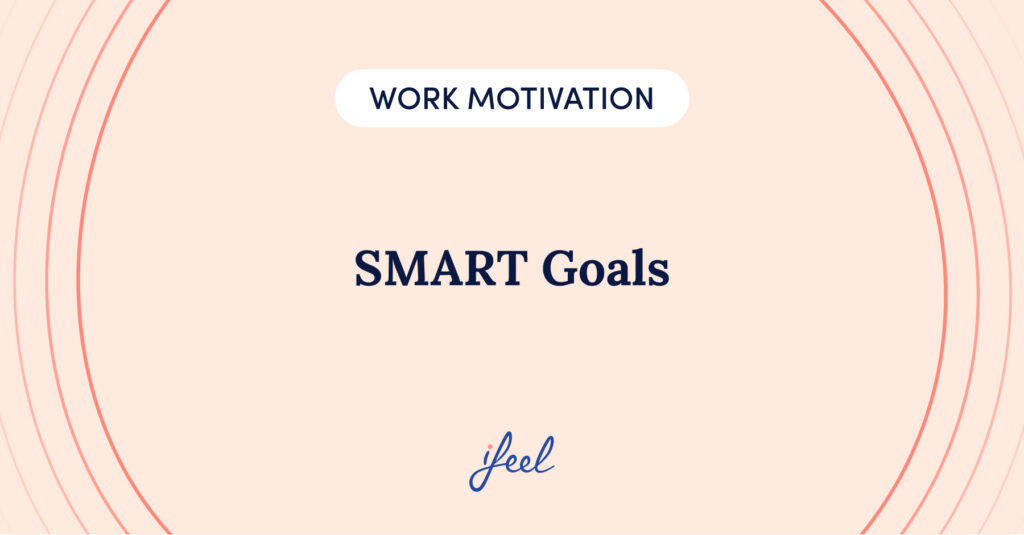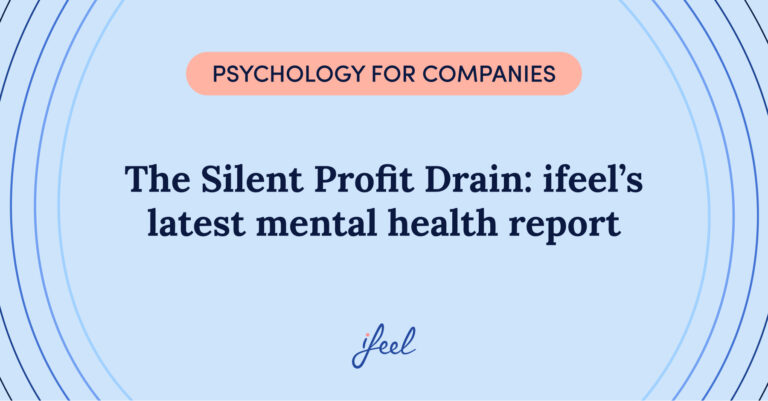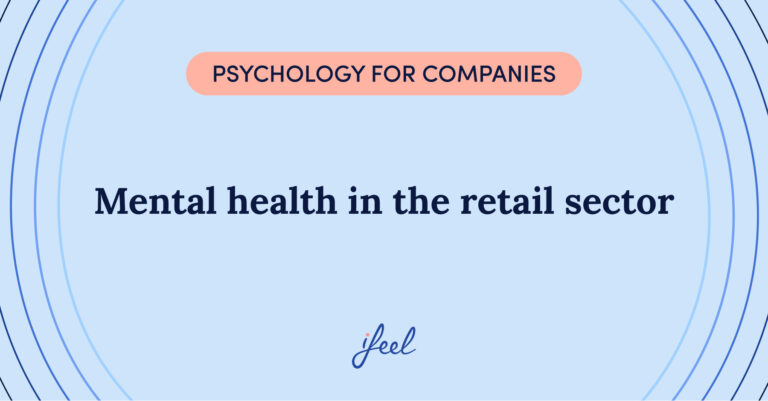In recent years, SMART goals have gained significant popularity in enterprises. Within the pursuit of continuous improvement and business success, setting effective goals and objectives is essential. Whether monetary targets or those related to corporate well-being, defining objectives sets the course for an organisation’s evolution.
To achieve these goals, it is crucial for all team members to be aligned, working towards the same objective. This approach not only enhances individual and collective performance but also fosters a healthier organisational culture aligned with the company’s values. However, this process is far more complex than it seems.
To maximise employee performance, it is vital to establish goals that are intelligent, clear, achievable, and motivating. But how can you ensure that the goals you set meet these criteria? In this article, we will explore how SMART goals in enterprises can be implemented to maximise results, reduce costs, and improve team mental health.
What are SMART goals?
The term “SMART” in SMART goals is an acronym that describes the key characteristics that goals must have to be effective. This acronym also alludes to the English translation of the word “intelligent.” Thus, using SMART goals in enterprises is a strategy designed to define objectives that truly drive teams to develop their skills.
By following each letter, the SMART acronym outlines that goals should be:
Specific: Goals must be clear and precise, avoiding ambiguities. Define what needs to be achieved and why.
Measurable: Goals should be quantifiable to allow progress evaluation. Use concrete numbers and data for this purpose.
Achievable: While ambitious goals are desirable, they must also be realistic. Unattainable goals often demotivate employees.
Relevant: Goals should align with the company’s strategic objectives and be pertinent to each employee’s role.
Time-bound: Finally, when defining the goal you want to achieve, you must also specify the time frame in which to work towards it. In other words, they should have a defined deadline for their achievement, creating a sense of urgency and commitment.
This approach enables companies to set clear and attainable goals, improving employee motivation and reducing the risk of frustration.
Implementing SMART goals in enterprises
To effectively implement SMART goals, a structured process involving all organisational levels is essential. Here are the steps to apply SMART goals in enterprises:
Step 1: Define specific objectives
The first step in setting SMART goals is to define them in a specific manner. This means avoiding vague and ambiguous goals. In other words, the goal should answer questions such as:
- What do we want to achieve?
- Why is it important?
- Who is involved?
- Where, or when will it take place?
For example, instead of setting a vague goal like “increase sales,” you could define it as “increase sales by 10% in the next quarter within the B2B client segment.” By describing goals in this way, confusion is avoided, and it becomes clear exactly what is to be achieved.
Step 2: Establish a measurement system
Goals should be measurable to ensure an objective evaluation of progress. For this reason, it is crucial to establish clear metrics that allow precise monitoring of advancements. Using quantitative data whenever possible simplifies this process, including indicators such as the percentage increase in sales, reduction in response times, or customer satisfaction levels.
For example, setting specific goals like “increase social media followers by 10%,” “acquire 50 new clients in the next quarter,” or “boost sales by 15%” provides a clear framework to measure and quantify the desired outcomes.
Step 3: Ensure goals are achievable
Objectives need to be both attainable and realistic. Setting unachievable goals can not only demotivate team members but also lead to frustration and anxiety. Therefore, a good leader who applies emotional intelligence at work evaluates the resources available to the company and the capabilities of their team to adapt goals accordingly.
This approach not only safeguards employees’ mental well-being but also fosters a healthier and more productive work environment. By defining achievable goals, you promote confidence and motivation within your team.
Step 4: Align goals with corporate objectives
When setting SMART goals in enterprises, you must ensure that the objectives you establish for each team are relevant to the overall success of the company and aligned with the roles and responsibilities of each employee. Therefore, make sure that the goals you set have a positive impact on achieving the organisation’s strategic objectives.
Step 5: Define time frames
Assigning a timeframe to each goal creates a sense of urgency and commitment. This helps with task planning and prioritisation. Additionally, setting a specific time frame allows employees to organise their work around the objectives, focus on the task at hand, and track their progress over time.
The Leadership Lens🔎
In the corporate world, leaders who implement SMART goals have the power to transform teams and outcomes. Why? Because these objectives not only align teams with the company’s strategic goals but also reduce ambiguities and maximise impact.
As a leader, it’s essential not only to teach your team how to create these goals but also to lead by example by setting your own SMART goals. When leaders are clear and consistent, results become inevitable. Remember: a well-crafted SMART goal is not just a tool—it’s a statement of purpose that inspires action and commitment at every level.
ifeel as a strategic ally
In enterprises, working without clear goals is like navigating without direction: employees face uncertainty, stress, and, ultimately, organisational chaos. This disorder not only affects the emotional well-being of teams but also directly impacts business outcomes. A lack of direction can lead to demotivated teams, erratic decision-making, and, most concerning, significant financial losses.
This is not an isolated problem. According to the World Health Organisation (WHO), 12 billion workdays are lost each year due to depression and anxiety, representing a global cost of $1 trillion annually in lost productivity. In today’s fast-paced business environment, no organisation can afford this level of negative impact.
To prevent this, adopting a strategic and structured approach like SMART goals is essential. These goals not only provide clarity and direction but, when combined with a commitment to mental health, become a powerful tool for improving employee well-being and optimising business outcomes. This approach helps reduce absenteeism, turnover, and underperformance, generating significant savings in operational costs.
This is where ifeel positions itself as the ideal strategic ally. Our comprehensive solution not only assists in implementing SMART goals in enterprises but also addresses the mental health of your teams at various levels, offering tangible benefits such as:
- Cost savings: We reduce the financial impact associated with mental health issues. For instance, savings of €15,000 to €50,000 per high-risk case can be achieved by lowering absenteeism and turnover.
- Prevention and early detection: We identify emotional risks before they affect productivity. Early detection of emotional issues also reduces intervention costs by 50%.
- Personalised plans: We design strategies tailored to the individual needs of each employee, including training in key skills such as time management and effective communication.
With ifeel, transforming chaos into clarity and losses into positive outcomes is possible. Implementing SMART goals and prioritising mental health not only enhances employee well-being but also ensures a stronger, more productive future for your enterprise.
Mental health at work: one of the greatest challenges for enterprises today
SMART goals in enterprises are a powerful tool for driving performance and well-being within organisations. However, their effectiveness is significantly enhanced when combined with comprehensive solutions like ifeel, which address employees’ emotional needs.
In an increasingly competitive business environment, investing in strategies that align clear objectives with emotional well-being is not just a best practice—it’s a strategic necessity. With ifeel, enterprises not only achieve their goals but also build a healthier and more sustainable organisational culture.
Are you ready to transform your organisation? Contact us today and discover how we can help you reach your objectives while taking care of your team!











